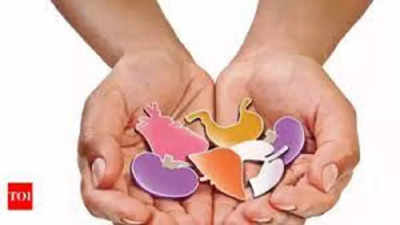- News
- City News
- erode News
- Tamil Nadu sees 18% surge in organ donations in 2024
Trending
Tamil Nadu sees 18% surge in organ donations in 2024
Tamil Nadu has experienced a surge in organ donations and cadaver transplants, thanks to strategic efforts by the state organ transplant network. Honour walks for donors have heightened awareness and support. Government and private hospitals have actively participated, leading to a significant rise in various types of transplants this year.

A year ago, the state announced it would accord state honour to organ donors.

On September 23, 2023, CM M K Stalin announced that deceased donors would be accorded honours by a district collector or a senior district or divisional official such as assistant collectors, DRO, sub-collectors, and revenue divisional officers. Since then, 258 donations have happened in the state. This is the highest-ever donation we have seen. In 2022, the state recorded 156 donations, which rose to 178 in 2023. This year, we have added 210 to our registry till Friday. We attribute this increase to a series of strategic moves by the department. Hospitals have started honour walks, where doctors, nurses, and paramedical staff walk with the donor's body from the ward to the mortuary. The aim is to increase awareness and offer support to grieving families.
What has been the role of govt hospitals? Have they been contributing?
The state created a group of hospitals that will harvest organs even if they do not perform transplant surgeries. Several medical college hospitals, including Dharmapuri, Krishnagiri, Tirupur, Theni, and Namakkal, have been actively contributing to the donor pool. There were 15 donations from Dharmapuri Medical College and Hospital since January. Among hospitals that perform transplant surgeries, Rajiv Gandhi Government General Hospital had 35 donations – the highest in the govt sector. This year, the state has harvested more than 1,184 organs, tissues, and bones. The increase in donations in govt hospitals has also led to an increase in organ transplants within govt hospitals.
How have private hospitals performed this year?
The number of private hospitals performing transplants has increased. Hospitals that were earlier performing transplants have expanded their scope. This year we have recorded five hand transplants compared to none last year. We have had five bowel transplants and three pancreatic transplants. We use a mobile app that requires minimal human intervention to allot organs. Analysis shows a more judicious use of organs. The utility of almost all organs has increased. Govt hospitals too are now exploring options for pancreatic, lung, and hand transplants.
Do we have data on the outcomes of these surgeries? How are our survival rates?
We are yet to get accurate data on survival rates, but the process is ongoing. We are planning to conduct a series of research studies on survival rates. We also want to see if the number of eligible live donors is coming down although transplants are increasing. Across the globe, doctors say there is a drop in eligible live donors because family sizes are smaller, and there is an increase in hypertension, diabetes, obesity, and other lifestyle disorders. Another scope for research is the effect of climate change on human organs. An increase in heat stress, air pollution, and chemicals in the food chain increases the risk of organ failure. A detailed study will help us develop strategies for prevention.
End of Article
FOLLOW US ON SOCIAL MEDIA










